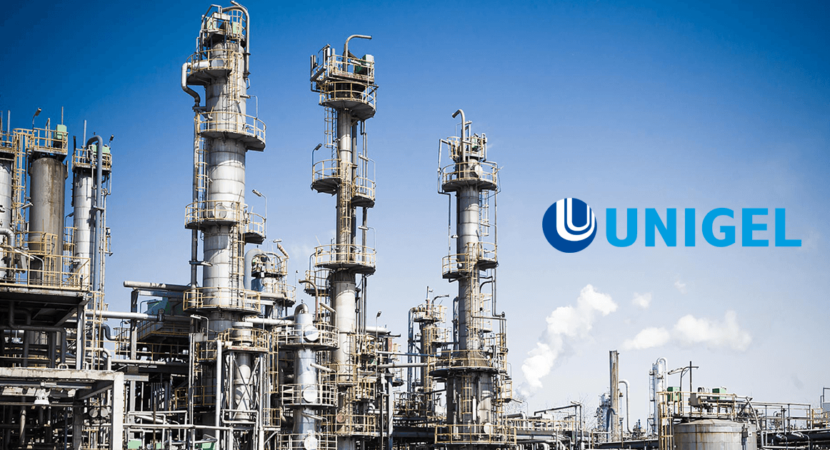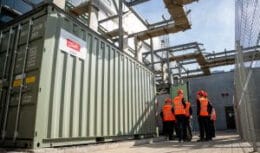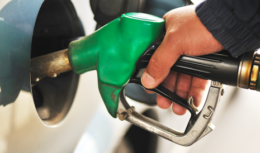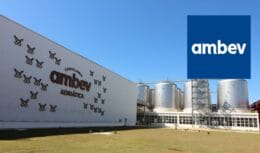
According to the petrochemical company, agribusiness and green hydrogen are the bets for the company's diversification
Petroquímica Unigel is betting on investments in agribusiness and green hydrogen, in order to diversify the company. According to the director of Investor Relations at the petrochemical company, Luiz Felipe Fustaino, the intention is to invest in more competitive products, such as green hydrogen, aiming at new investments and greater employability in Brazil.
Also check out:
- Over 100 job openings available at PepsiCo Brazil for salesperson, multifunctional operator, promoter, production assistant, logistics assistant and more
- Using state-of-the-art technology, Videome creates the first educational robot in Brazil, which has artificial intelligence
- Ocean battery is the newest way to store renewable energy, developed by the Dutch. The model is located at the bottom of the sea
Fustaino further explains: “We continue to invest in Brazil, but we are diversifying the business. First in agribusiness, which is an unbeatable power and helps us to mitigate the risks that the sector faces. But we also have a green hydrogen project that puts us at the forefront for the fuel of the future, a zero carbon solution that will be able to be used by the steel and cement industry, for example, which were challenged to decarbonize their chains”.
At the end of last year, Unigel signed contracts for the acquisition of natural gas with Petrobras and Shell to supply its nitrogen fertilizer industries in Sergipe and Bahia, which were reopened throughout 2021. The petrochemical company wants to ensure the operation of its factories at full capacity. In Bahia, it established investments with the government to set up a green hydrogen and ammonia industry.
Absence of benefits
Among the dangers of the petrochemical operation in Brazil, the director addresses the concern with competition regarding green hydrogen and the government's decision to immediately interrupt the Special Regime for the Chemical Industry (Reiq), present in Provisional Measure (MP) 1095/2021. To compensate for the withdrawal generated by the exemption of aircraft leasing, President Jair Bolsonaro decided to cease tax benefits granted to the chemical sector.
“We started the year with this bad news, Reiq's early suspension. The reduction was already foreseen, but it would be gradual, until 2025. It is an MP that has not yet entered into force, there are some points being questioned. But without a doubt, the early end of the regime is a defeat for the industry”, analyzes Fustaino.
The Reiq, effective in 2013, exempts PIS/Cofins at 3,65% on investments in first and second generation basic raw materials. According to the Brazilian Association of the Chemical Industry (Abiquim), a study carried out by the Getúlio Vargas Foundation (FGV) states that the unexpected end of the special regime puts more than 80 jobs at risk, brings a loss in revenue of R$ 3,2 billion and a drop in GDP of around R$ 5,5 billion. In addition, it affects around 20 petrochemical industries, both domestic and foreign, compromising many investments, including green hydrogen.
“The chemical industry needs to be seen in the country as enabling the competitiveness of all other sectors. As one of the largest industries in the chemical sector, this concerns us”, adds the director.
favorable outlook
However, the forecast of higher petrochemical spreads has left Unigel optimistic. Widely used in the petrochemical industry, the indicator defines the balance between the price of the product and investments in its raw material.
Luiz Felipe says: “[…] In the coming years we will see higher petrochemical spreads, I believe, because we don't have an increase in supply in the world, while demand continues to rise with GDP. Demand grows with GDP, but supply does not grow at the same pace”.
Considering revenue and Ebitda on the rise, the company must have achieved one of the best results in 2021. Although the data have not yet been released, Ebitda in the last year until September, of R$1,4 billion, was 2,5 times greater than the same period of 2020. Revenue, on the other hand, was R$6,3 billion, 94% higher than in 2020.
“We are heading towards an excellent result in 2021. The year should end even better than the 12-month indicators up to September”, adds the petrochemical IR director.












